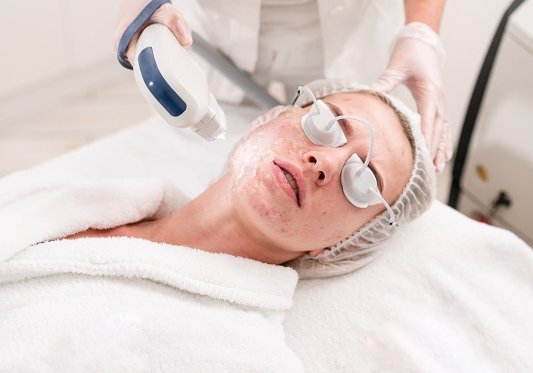Frequently Asked Questions about Acne Treatment
Acne, medically known as Propionibacterium (P-ance) or in its severest state, Acne Vulgaris. These are both commonly recognised by the presence of blackheads, whiteheads & other types of pimples (Bacteria) on the surface of the skin. The most common spots for breakouts are the face, chest, shoulders & back.
A basic acne lesion, is a hair follicle that has become clogged with oil & dead skin cells. These lesions can swell into bumps called whiteheads & or blackheads.
The difference between the types of acne or appearance of the lesion is:
- Whiteheads are acne lesions that stay closed at the surface of the skin. This happens when oil & skin cells prevent a clogged hair follicle from opening.
- Black heads are an acne lesion that is open at the surface of the skin. As with whiteheads, blackheads are also filled with excess oil & dead skin cells. It's not dirt that causes the blackhead to turn black. The black hue results from the irregular reflection of light coming from clogged hair follicles.
An overactive & inflamed sebaceous gland is almost always the cause of this style of acne. Excess production of oil creates an ideal environment for bacteria to grow. The excess oil, bacteria & dead skin cells cause the hair follicle to become blocked & this is when the appearance of acne & associated inflammation begin to occur.
IPL photo skin rejuvenation can be used to treat both problematic long term acne or active acne or “breakouts”. Acne is extremely light sensitive, specifically to the wavelengths/colours blue (420nm - 490nm). IPL can be filtered specifically to emit this colour range, making it ideal to treat acne. IPL also has the added advantage of being able to treat deeper into the skin, where the cause of the inflammation, redness, & soreness start, which at base of the blocked gland.
Because acne is so light sensitive & IPL is recognised as being so effective at treating acne breakouts, IPL treatments are recommended by the AMA as the safest & best method to target & remove acne with the least number of side effects. If you find your skin is super sensitive to light, you can use our PDT methods or LLLL which both use minimal amounts of energy, but still create the same wavelength/colour of light, to treat the acne.
There are many over the counter drug/chemical products/washes on the market for acne, however these are usually insufficient for treating problematic acne, as they only treat the surface the skin & do nothing to reduce the swelling of the sebaceous gland that causes the acne deeper in the skin. Which can mean long drawn out treatment periods are required to get the desired results. This can be up to several months before the products claims of reducing acne may be fulfilled, making some of these products cost thousands of $’s to get results. The use of prescription medications is not a decision to be made lightly, as these medications often come with a whole host of negative side-effects. Light sensitivity being one of the major side effects. Treating Acne with IPL is a fast, reliable, & medically recognised alternative to these options that will treat your acne in all stages, from the concerns you can visually see on the surface of your skin, all the way to the underlying root cause at the base of the sebaceous gland.
Please be aware, as with any IPL or light based therapy treatment, that direct sunlight or prolonged exposure to the sun should be avoided pre & post treatment, & the use of SPF30+ sunscreen should be applied regularly if sun exposure is unavoidable. A basic skincare regime should be followed at home, to get optimal results from your IPL acne treatment sessions including washing your pillow case more often than once a week. Ask our technicians about what products they would suggest using to ensure your skin gets the right care.
Depending on the severity of your acne, you will likely need to have multiple IPL treatments, approximately 4 to 6 is the average for most people with active acne. Treatments are spaced between a few days to a week apart, to get the best results.
If you are taking prescription acne medications, you may need to wait up to 4wks after stopping the medication, before commencing with a course of IPL treatment. This is because some medications can increase the skin’s sensitivity to light, & increases the risks of complications.
It is best to check with your doctor if any medication you take may cause light sensitivity prior to commencing treatment.
If you are unsure if an IPL Acne treatment is for you, Laser HRH offer a free consultation to discuss your individual needs & answer any further questions you may have about if this treatment will work for you.

